
GitHub, Inc. is an internet hosting service for software development and version control. In addition to distributed version control with Git, it provides access control, bug tracking, software feature requests, task management, continuous integration, and wikis for each project. The company, headquartered in central California, has been a subsidiary of Microsoft since 2018.
GitHub is commonly used to host open-source software development projects. As of January 2023, GitHub reports having over 100 million developers and more than 372 million repositories, including at least 28 million public repositories. Since November 2021, it has been the world's largest source code host.

GitHub at the AWS Summit
GitHub.com
GitHub.com was developed on October 19, 2007, by Tom Preston-Werner, Chris Wanstrath, P. J. Hyett, and Scott Chacon. The site was launched as a beta version a few months prior, and GitHub, Inc. was officially established in April 2008. GitHub has an annual keynote speech event called GitHub Universe.
Organization structure
Initially, GitHub, Inc. was a flat organization without middle managers, meaning that "everyone is a manager" (self-management). Employees could choose to work on projects that interested them (open allocation), but salaries were set by the CEO.
In the midst of harassment allegations against upper management, GitHub, Inc. launched a middle management layer in 2014. Tom Preston-Werner resigned as CEO in the midst of the scandal.
Finance
GitHub.com was initially a start-up company that would be funded only by its three founders and generate enough revenue to hire employees. In July 2012, four years after the company's establishment, Andreessen Horowitz invested $100 million in venture capital. In July 2015, GitHub raised another $250 million in a Series B round of venture capital. Investors were Sequoia Capital, Andreessen Horowitz, Thrive Capital, and other venture capital funds. As of 2018, GitHub generated an estimated $200-300 million in annual recurring revenue.
GitHub service was developed by Chris Wanstrath, P. J. Hyett, Tom Preston-Werner, and Scott Chacon, along with Ruby on Rails, and it started in February 2008. GitHub, Inc. was founded in 2007 and is headquartered in San Francisco.
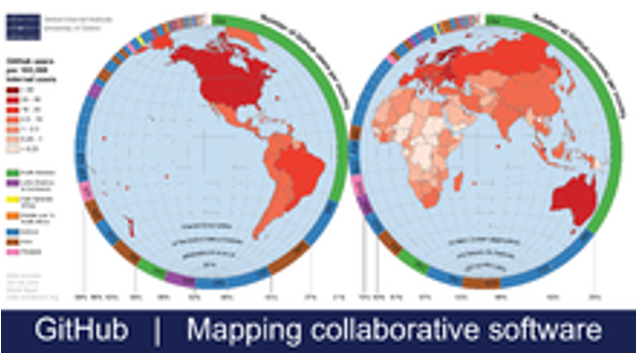
On February 24, 2009, GitHub announced that it had accumulated more than 46,000 public repositories within its first year online, with 17,000 created in the previous month alone. At the time, approximately 6,200 repositories had been forked at least once, and 4,600 repositories had been merged.
That same year, GitHub reported that the site was being used by over 100,000 users and hosted 12,000 unique public repositories that had been forked at least once among a total of 135,000 repositories.
In 2010, GitHub hosted 1 million repositories. One year later, this number doubled. In the January-May 2011 period, it reported that it had surpassed SourceForge and Google Code in total number of commits. On January 16, 2013, GitHub passed the 3 million user mark and subsequently hosted over 5 million repositories. By the end of the year, the number of repositories had doubled, reaching 10 million.
In 2012, GitHub raised $100 million in funding with a valuation of $750 million from Andreessen Horowitz. On July 29, 2015, GitHub reported that it had secured $250 million in funding led by Sequoia Capital. Other investors for this round were Andreessen Horowitz, Thrive Capital, and IVP (Institutional Venture Partners). The round valued the company at approximately $2 billion.
In 2015, GitHub opened an office in Japan, its first office outside of the United States. In 2016, GitHub was ranked 14th on Forbes Cloud 100 list, marking its success as a private cloud computing company. However, it did not make the list in 2018, 2019, and 2020.
On February 28, 2018, GitHub fell victim to the third largest distributed denial-of-service (DDoS) attack in history, with incoming traffic reaching a peak of approximately 1.35 terabits per second.
Acquired by Microsoft

In 2016, Microsoft was at the top of the list of the top ten contributors to open source projects on GitHub.
Since 2012, Microsoft has become a significant user of GitHub, hosting open-source projects and development tools such as .NET Core, Chakra Core, MSBuild, PowerShell, PowerToys, Visual Studio Code, Windows Calculator, Windows Terminal, and most product documentation (now available on Microsoft Docs).
On June 4, 2018, Microsoft announced its intention to acquire GitHub for $7.5 billion. The deal closed on October 26, 2018. GitHub continued to operate independently as a community, platform, and business. The service, led by Nat Friedman from Xamarin, reported to Scott Guthrie, Executive Vice President of Cloud and AI at Microsoft. GitHub CEO Chris Wanstrath was hired as a "technologist" who also reported to Guthrie. Nat Friedman resigned on November 3, 2021, and was replaced by Thomas Dohmke.
JavaScript trainer and author Kyle Simpson and Open-Xchange CEO Rafael Laguna were concerned about Microsoft's acquisition and expressed disappointment about previous acquisitions such as Microsoft's handling of Nokia's mobile business and Skype.
This acquisition was in line with Microsoft CEO Satya Nadella's strategy of focusing on the development and contributions of open source software and cloud computing services. Harvard Business Review argued that Microsoft planned to acquire GitHub to gain access to its user base, so that it could be used as a loss leader to encourage the use of other development products and services.
Sales concerns increased interest in competitors: Bitbucket (owned by Atlassian), GitLab, and SourceForge (owned by BIZX, LLC) reported sudden increases in new users wanting to migrate their projects from GitHub to their services.
In September 2019, GitHub acquired Semmle, a code analysis tool. In February 2020, GitHub was launched in India under the name GitHub India Private Limited. In March 2020, GitHub announced that they had acquired npm, a JavaScript packaging provider, for an undisclosed amount. The deal was closed on April 15, 2020.
In early July 2020, the GitHub Archive Program was established to continuously archive open-source code.
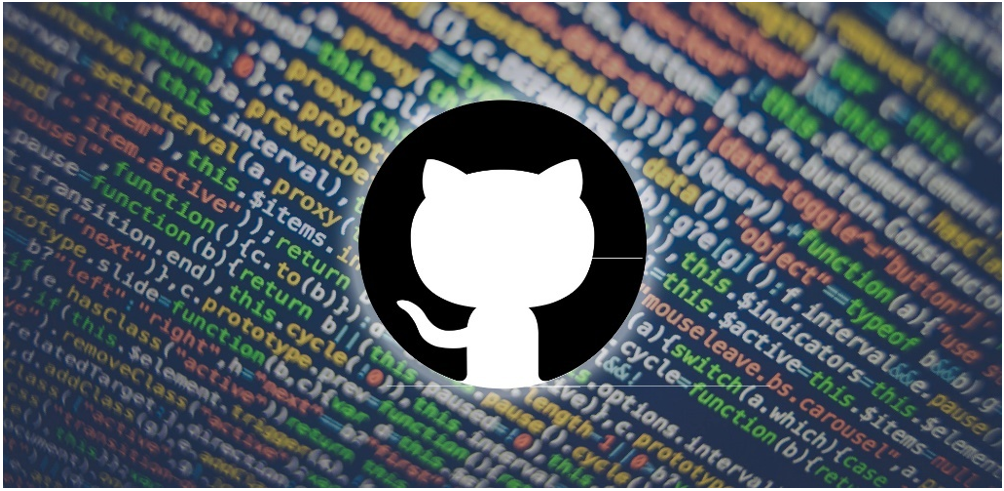
Mascot
GitHub's mascot is an anthropomorphic "octopus" with five octopus-like arms. The character was created by graphic designer Simon Oxley as a miniature for sale on iStock, a website that allows designers to market their royalty-free digital images. After GitHub became interested in Oxley's work, following their selection of a bird as the logo for Twitter, the illustration chosen by GitHub was a character by Oxley named Octopuss. Since GitHub wanted to purchase exclusive rights to the image, which was not permitted under the iStock license, they negotiated with Oxley to buy the image's rights.
GitHub put the old Octocat character in the background and used the character that was renamed to Octopuss in the foreground. Later, GitHub hired illustrator Cameron McEfee to customize Octocat for various purposes on their website and promotional materials. Since then, McEfee and several GitHub users have created hundreds of variations of the character on Octodex.
Services
Projects on GitHub.com can be accessed and managed using the standard Git command-line interface; all standard Git commands work with it. GitHub.com also allows users to browse public repositories on the site. Multiple desktop clients and Git plugins are also available. The site offers social-network-like features such as publications, followers, wikis (using the Gollum wiki software), and a social network graph to show how developers work on versions of a repository ("forks") and which fork (and branch within that fork) is the latest.
Anyone can search and download public repositories, but only registered users can contribute content to repositories. With a registered user account, users can participate in discussions, manage repositories, contribute to other people's repositories, and view changes in code. GitHub.com began offering limited free private repositories (limited to three collaborators per project) in January 2019. Previously, only public repositories were free. On April 14, 2020, GitHub made "all of GitHub's core features" free for everyone, including "unlimited private repositories."
The underlying software supported by GitHub is Git itself, created by Linux creator Linus Torvalds. The patchwork provided by the GitHub UI was written by GitHub, Inc. developers Wanstrath, Hyett, and Preston-Werner, along with Ruby on Rails and Erlang.
Scope
GitHub's main purpose is to facilitate version control and issue tracking for software development. For issue tracking, tags, milestones, assignment of responsibility, and a search engine can be used. Version control (and the GitHub.com extension) allows for proposed changes to be made in the source code through pull requests. Users who have the ability to view proposed changes can see the difference in the desired changes and approve them. In Git terminology, this action is called "committing" and an example of this is a "commit". The entire history of commits is kept and can be viewed later.
Additionally, GitHub supports the following formats and features:
- Documentation, including README files processed automatically in various Markdown-like file formats (see README on GitHub)
- GitHub Actions, which enable the creation of continuous integration and continuous deployment pipelines to test, publish, and distribute software without using third-party websites/platforms
- Dashboards: pulse, contributors, commits, code frequency, punch card, network, Members
- Integrations Directory
- Email notifications
- Discussions
- Option to subscribe to notifications by listing someone
- Takenlijsten genest in bestanden
- Visualization of geo-spatial data
- 3D creation files viewable using a new integrated
- Original PSD format from Photoshop can be viewed and compared with previous versions of the same file.
- PDF viewer for Belgium
GitHub's Service Terms do not require public software projects hosted on GitHub to conform to the Open Source Definition. The Service Terms state, "By setting your repositories to be viewed publicly, you agree to allow others to view and fork your repositories."
GitHub Corporate
GitHub Enterprise is a self-managed version of GitHub.com with similar functionality. It can run on an organization's own hardware or on a cloud provider and has been in use since November 2011. In November 2020, the source code of GitHub Enterprise Server was leaked online as a protest against the DMCA takedown of youtube-dl. According to GitHub, the source code came from Enterprise customers accidentally sharing it themselves, not from an attack on GitHub servers.
GitHub Pages
GitHub has been offering GitHub Pages, a static web hosting service for blogs, project documentation, and books since 2008.
All GitHub Pages content is stored as individual files in a Git repository or in Markdown format. GitHub integrates with the static Jekyll website and blog generator for continuous integration and with GitHub Actions. Whenever the content source is updated, Jekyll rebuilds the website and GitHub Pages automatically serves it.
Like the rest of GitHub, it includes both free and paid service tiers. Websites created through this service are hosted as subdomains of the github.io domain or can be connected to custom domain names purchased through a third-party domain registrar. GitHub Pages supports HTTPS encryption.
Ore
GitHub also manages a new site for code snippets with Maya. Tom Preston-Werner introduced this feature at a Ruby conference in 2008.
Maya is built on the traditional simple pastebin concept, with version control for code snippets, easy forking, and TLS encryption added for private pastes. Since each "gist" has its own Git repository, multiple code snippets can be saved to a single page and pushed and pulled with Git.
Unregistered users could upload Gists until March 19, 2018; after this date, uploading Gists was limited to users who signed in to reduce spam on the Gists page.
Gists URLs use hexadecimal identifiers, and actions on Gists are recorded in a revision history with an option to show a text diff of the last thirty revisions per page and between "split" and "unified" views. Like repositories, Gists can be forked, starred, which marks them as public, and commented on. The number of revisions, stars, and forks is shown on the gist's page.
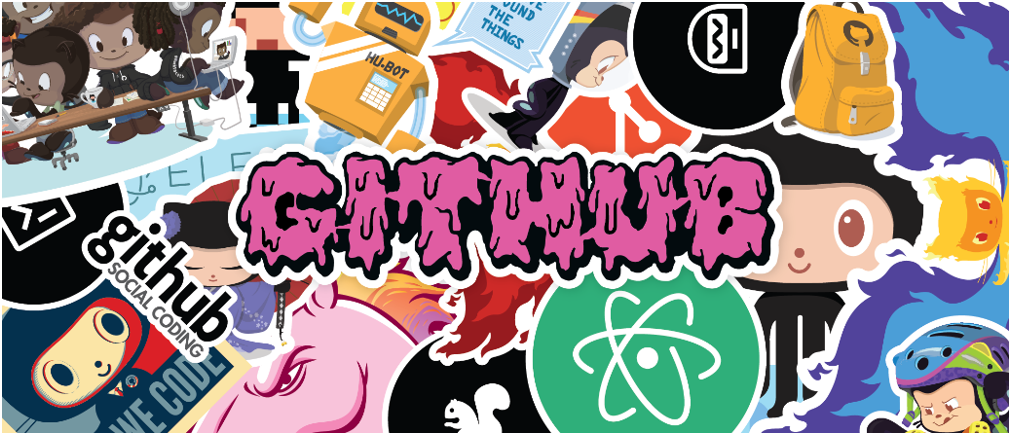
Training
GitHub has launched a new program called the GitHub Student Developer Pack to provide free access to popular development tools and services for students aged 13 and over. GitHub partnered with Bitnami, Crowdflower, DigitalOcean, DNSimple, HackHands, Namecheap, Orchestrate, Screenhero, SendGrid, Stripe, Travis CI, and Unreal Engine to launch the program.
In 2016, GitHub also announced the launch of the GitHub Campus Experts program to encourage and educate students in technology communities at their universities. The Campus Experts program is open to students aged 18 and over worldwide. Campus Experts are one of the main ways GitHub finances student-centered events and communities; they provide education, funding, and access to additional resources to host events and grow communities. To become a Campus Expert, applicants must complete an online training course consisting of multiple modules designed to develop their community leadership skills.
GitHub Market-service
GitHub also offers some software-as-a-service ("SaaS") integrations as additional features for projects. These services include:
Waffle.io: Project management for software teams. Automatically view pull requests, automated builds, reviews, and deployments across all your repositories on GitHub.
Rollbar: Integrates with GitHub to provide real-time error debugging tools and full stack exception reporting. Compatible with all popular code languages such as JavaScript, Python, .NET, Ruby, PHP, Node.js, Android, iOS, Go, Java, and C#.
Codebeat: Automated code analysis specialized in web and mobile development. Supported languages for this software include JavaScript, Elixir, Ruby, Go, Python, Java, Objective-C, Swift, TypeScript, and Kotlin.
Travis CI: Provides confidence to your applications when testing and deploying. It also offers full control over the build environment to ensure code compatibility. Supported languages include Go, Java, JavaScript, Objective-C, Python, PHP, Ruby, and Swift.
GitLocalize: Designed for teams that translate their content from one point to another. GitLocalize automatically syncs with your repository on GitHub so you can keep your workflow there. It also keeps you constantly up to date.
GitHub sponsors
GitHub Sponsors allows users to donate money monthly to projects hosted on GitHub. The public beta was announced on May 23, 2019, and accepted project waiting lists. The Verge said that GitHub sponsors "works exactly like Patreon," because "developers can offer various funding levels that provide different benefits and can receive recurring payments from supporters who want to access and encourage their work." Additionally, GitHub offers incentives for early adopters during the first year: committing to cover payment processing fees and matching sponsorship payments up to $5,000 per developer. Additionally, users can continue to use other similar services like Patreon and Open Collective and link them to their own websites.
GitHub Archive Program
In July 2020, GitHub stored the site's February archive in an abandoned mountain mine in the town of Spitsbergen, Norway, which is part of the Arctic World Archive and not far from the Svalbard Global Seed Vault. The archive contained the code for all active public repositories as well as inactive but significant public repositories. The 21 TB of data was stored as a matrix (2D) barcode (Box barcode) on piqlFilm archive film reels and is expected to last 500-1,000 years.
The GitHub Archive Program also works with partners at Project Silica to store all public repositories for 10,000 years.
Allegations of harassment
In March 2014, GitHub programmer Julie Ann Horvath alleged that she experienced a pattern of harassment by co-founder and CEO Tom Preston-Werner and his wife Theresa, which led to her departure from the company. In April 2014, GitHub released a statement denying Horvath's allegations. However, after an internal investigation, GitHub confirmed the allegations. GitHub's CEO, Chris Wanstrath, wrote in a company blog post, "The investigation found that Tom Preston-Werner, as CEO of GitHub, acted inappropriately, including confrontational behavior, disregard of workplace complaints, insensitivity to the impact of his spouse's presence in the workplace, and failure to enforce an agreement that his spouse should not work in the office." Preston-Werner subsequently resigned from the company. The company later announced that it would implement new initiatives and training to "ensure that employee concerns and conflicts are taken seriously and addressed appropriately."
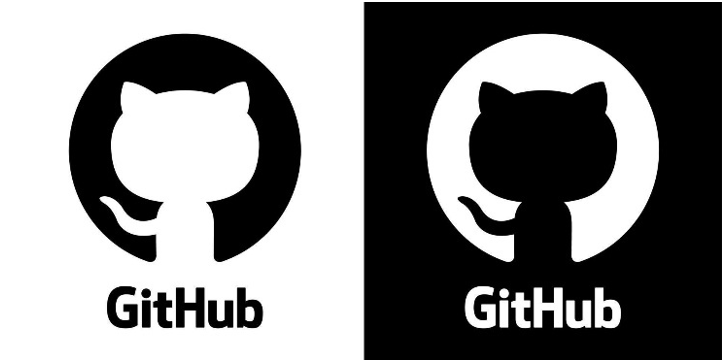
Sanction
On July 25, 2019, an Iran-based developer wrote on Medium that GitHub had blocked access to private repositories and pages for Iranian users. Shortly afterwards, GitHub confirmed that it had blocked
access to private repositories for developers in Iran, Crimea, Cuba, North Korea, and Syria. However, days later, GitHub reopened access to GitHub pages for public repositories regardless of location. Additionally, they found that using GitHub while visiting sanctioned countries could lead to similar actions being taken on a user's account. GitHub responded to complaints and media inquiries through a spokesperson, saying:
"GitHub is subject to U.S. trade control laws and strives for full compliance with applicable laws. At the same time, GitHub's vision is to be a global platform for developer collaboration, regardless of where they are located. As a result, we take our responsibility to comprehensively investigate government requests to ensure that our users and customers are not affected beyond what the laws require. This includes keeping public repository services available and accessible, including open-source projects that involve developers in sanctioned areas."
Developers who believe there should be no restrictions can appeal for the restrictions to be lifted, including those who travel to or reside in these countries. GitHub prohibits the use of VPNs and IP proxies to access the site from sanctioned countries, as well as how users are flagged, in addition to other sources such as purchase histories and IP addresses.
Censorship
On December 4th, 2014, Russia blocked GitHub.com from access due to their refusal to remove suicide guides originally published by users. The ban was lifted the next day, but GitHub started blocking certain content and pages in Russia. On December 31st, 2014, India blocked GitHub.com and 31 other websites due to ISIS-related content published by users; the ban was lifted three days later. On October 8th, 2016, Turkey blocked GitHub to prevent email leaks of an attacked account belonging to the country's energy minister.
On March 26th, 2015, a large-scale DDoS attack was launched against GitHub.com, lasting less than five days. The attack, which targeted user content, was apparently originated in China and revealed methods for bypassing internet censorship.
On April 19th, 2020, Chinese police arrested Chen Mei and Cai Wei, volunteers for Terminus 2049 (a project hosted on GitHub), accusing them of "inciting subversion of state power". Chen and Cai had archived news articles, interviews, and other materials that had been censored by Chinese authorities in Chinese media and social media platforms and translated them into English.
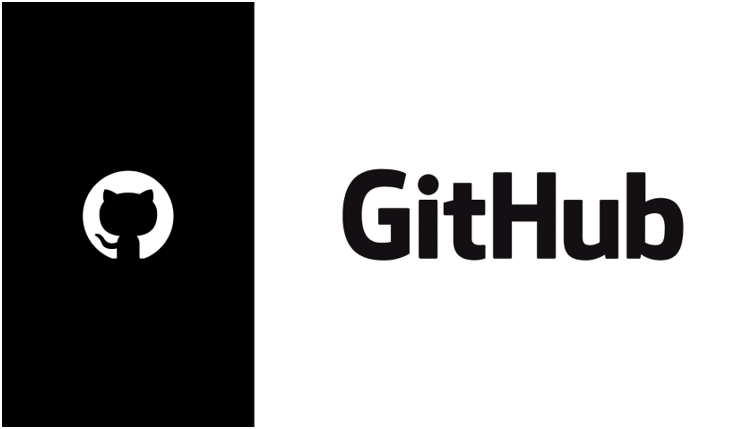
ICE contract
GitHub has a $200,000 contract with the US Immigration and Customs Enforcement (ICE) for its enterprise product GitHub Enterprise Server. Despite internal opposition from many GitHub employees, the contract was renewed in 2019. In an email sent to employees and later published on the GitHub blog on October 9, 2019, CEO Nat Friedman said, "Revenue from the purchase is less than $200,000 and not financially material to our company." GitHub pledged to donate $500,000 to nonprofit organizations supporting immigrant communities targeted by the current administration in response. In response, at least 150 GitHub employees signed an open letter reiterating their opposition to the contract and condemning ICE's alleged human rights violations. Five employees had resigned in November 2019 due to the contracts.
The ICE contract dispute resurfaced in June 2020 following the company's decision to abandon the "master/slave" branch terminology, which was encouraged by George Floyd protests and the Black Lives Matter movement. GitHub's critics described the renaming of the branch as a type of performative activism and called on GitHub to instead cancel the ICE contract. An open letter from members of the open-source community shared on GitHub in December 2019 demanded the company end its contract with ICE and provide more transparency about how they conduct their business and partnerships. The letter was signed by over 700 people.
Comments for Capitol riots and layoffs
In January 2021, GitHub fired one of its employees and expressed concerns to colleagues for calling some of the insurrectionists "Nazis" following a violent mob's attack on the US Capitol. After an investigation, GitHub's COO stated that there were "significant legal and procedural errors" regarding the company's decision to terminate the employee. Following the investigation, GitHub reached out to the employee and fired the company's head of human resources.
Source:https://www.turkhackteam.org/konular/github-nedir.2035823/
Son düzenleme:






